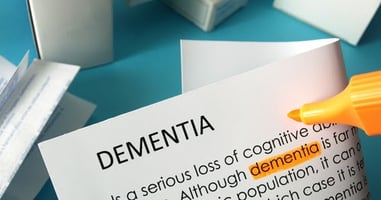Individuals with diabetes who also have depression face a greater risk of developing dementia than...
Hypoglycemia, Dementia Appear to Compound Each Other in Diabetes
 |
They found that during the 12-year follow-up, 61 participants (7.8%) had a reported hypoglycemic event, and 148 (18.9%) developed dementia. Those who experienced a hypoglycemic event had a two-fold increased risk for developing dementia compared with those who did not have such an event. Similarly, older adults with diabetes who developed dementia had a greater risk for having a subsequent hypoglycemic event compared with participants who did not develop dementia.
“Hypoglycemia may impair cognitive health, and reduced cognitive function may increase the risk for a hypoglycemic event that could further compromise cognition, resulting in a detrimental cycle,” the researchers said, urging that “Cognitive function should be considered in the clinical management of older individuals with diabetes.”
The new study is posted here. For more information on the link between dementia and diabetes, see Psychiatric News here.
(Image:Lightspring/shutterstock.com)





